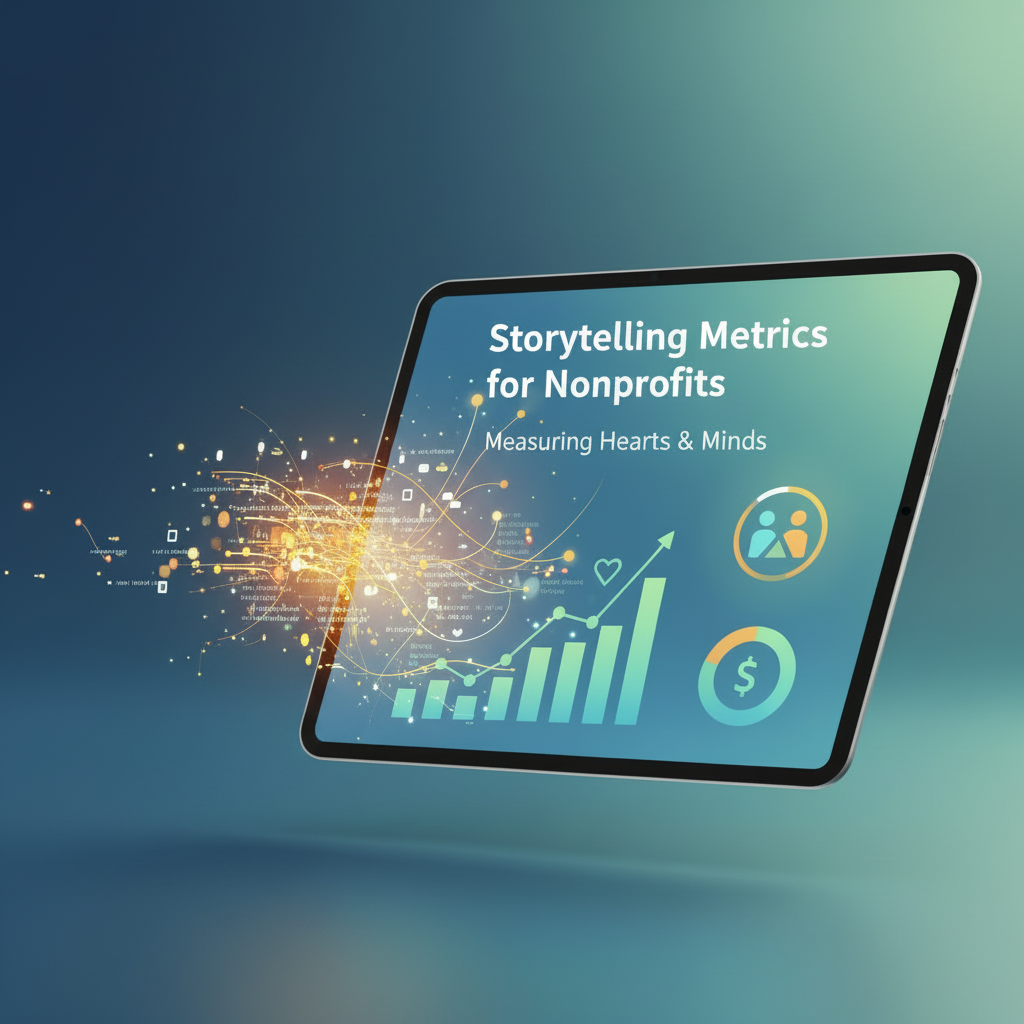Amplifying Voices: Storytelling and Activism in Chicago's Undocumented Community

Gaining a voice storytelling and undocumented youth activism in Chicago is reshaping the landscape of advocacy and social change. Undocumented youth in Chicago are stepping out of the shadows, using storytelling as a powerful tool to illuminate their struggles and reclaim their rights. Here's what you need to know:
- Strategic Storytelling: Undocumented youth carefully craft and share their stories to captivate diverse audiences.
- Community Building: These stories help incorporate new members into their movement, strengthening their cause.
- Emotional Impact: Emotions play a central role in engaging the audience and legitimizing the youth's grievances.
- Change-Driven Narratives: Storytelling is not just a tool but a catalyst for social and political change.
In the heart of this vibrant city, these narratives are not mere tales; they are a rallying cry for justice, visibility, and change. By sharing personal experiences, undocumented youth aim to educate and mobilize, building alliances in the fight for social justice.
The power of storytelling lies in its ability to make the invisible visible, turning personal hardships into collective action. As these young activists speak, they forge a path toward a more inclusive society, drawing attention and support from communities both locally and nationwide.

Gaining a Voice: Storytelling and Undocumented Youth Activism in Chicago
The Role of Storytelling
Storytelling is at the heart of gaining a voice storytelling and undocumented youth activism in Chicago. It acts as a bridge, connecting personal experiences with broader social issues. These young activists use storytelling to share their journeys, struggles, and dreams, creating a mix of narratives that resonate deeply with audiences.
Emotional resonance is key. When undocumented youth share their stories, they evoke empathy and understanding. This emotional connection is powerful. It transforms passive listeners into active supporters. The stories are not just spoken; they are felt.
To improve this connection, activists often use multimedia content. Videos, photos, and social media posts bring stories to life in vivid detail. This approach broadens their reach and impact, capturing the attention of diverse audiences.
Impact on Community
The impact of storytelling goes beyond personal expression. It fosters social inclusion by humanizing the undocumented experience. By sharing their narratives, youth activists break down stereotypes and misconceptions, paving the way for a more inclusive society.
Community-driven storytelling empowers individuals to take control of their narratives. It encourages undocumented youth to step forward, share their stories, and inspire others to do the same. This collective storytelling effort strengthens community bonds and builds a supportive network.
In Chicago, storytelling has become a tool for change. It amplifies voices that were once silenced, allowing undocumented youth to advocate for their rights and influence public opinion. As these stories spread, they create ripples of awareness and action, driving social change from the ground up.

These narratives are not just stories; they are a movement. They challenge the status quo, inspire empathy, and call for justice. Through storytelling, undocumented youth in Chicago are not only gaining a voice but also rewriting the narrative of their lives and their community.
The Liminal Politics of Undocumented Activism
Disrupting the Order
In undocumented activism, liminal politics plays a crucial role. These politics exist in the in-between spaces—neither fully included in society nor completely excluded. This creates a unique opportunity for undocumented activists to challenge the status quo.
Undocumented youth in Chicago are at the forefront of this disruption. By sharing their personal stories, they highlight the injustices they face and demand change. This act of storytelling is a form of political disruption. It shakes up established norms and forces society to confront uncomfortable truths.
These young activists are not just seeking to be heard; they are actively reshaping the political landscape. As they share their experiences, they disrupt the existing order and push for policies that recognize their rights and contributions.
Non-Citizen Citizenship
The concept of non-citizen citizenship is central to understanding the activism of undocumented youth. This idea challenges traditional notions of citizenship, which are often tied to legal status. Instead, it focuses on active citizenship—participating in society and advocating for change, even without formal recognition.
Undocumented activists in Chicago engage in transnational activism, connecting with movements across borders. They use recognition strategies to gain visibility and support. By forming alliances with other marginalized groups, they strengthen their collective voice.
These activists steer the political ambiguities of their situation, using storytelling as a tool for empowerment. Their narratives are not just about personal struggles; they are calls to action that resonate globally.

Through their efforts, undocumented youth in Chicago are redefining what it means to be a citizen. They demonstrate that citizenship is not just a legal status but an active engagement in the community and the fight for justice.
From Sanctuary to Welcoming Cities
Negotiating Social Inclusion
In the journey from sanctuary cities to welcoming initiatives, undocumented youth play a vital role. Sanctuary cities offer a refuge, but welcoming initiatives aim for deeper social inclusion. They strive to integrate undocumented individuals into the fabric of the community, providing not just safety, but belonging.
In cities like Chicago, this means creating spaces where undocumented youth can share their stories without fear. It involves social dialogue—conversations between community members, policymakers, and activists. These dialogues pave the way for policies that accept diversity and recognize the contributions of all residents.
One way this is achieved is through local migration regimes. These are local policies and practices that govern how migrants are treated. By negotiating these regimes, advocates push for a more inclusive approach that considers the unique challenges faced by undocumented individuals.
Cross-Status Alliances
The DREAM movement is a powerful example of how undocumented youth build alliances across different social statuses. This movement, driven by young immigrants, seeks to secure legal status for undocumented youth brought to the U.S. as children.
A significant aspect of their strategy is privilege checking. This means acknowledging the differences in privilege within the movement and working to bridge these gaps. Undocumented youth often partner with allies who have legal status, using their privilege to amplify the voices of those who do not.
These cross-status alliances are crucial in the fight for social inclusion. They bring together diverse groups, creating a united front that is harder to ignore. By working together, these alliances strengthen the push for policies that support undocumented communities.
In summary, the transition from sanctuary to welcoming cities involves more than just policy changes. It requires a cultural shift towards embracing diversity and fostering community-driven storytelling. Through social dialogue and cross-status alliances, undocumented youth in Chicago are leading the charge towards a more inclusive society.
Frequently Asked Questions about Storytelling and Undocumented Youth Activism
How does storytelling empower undocumented youth?
Storytelling is a powerful tool for undocumented youth in Chicago. By sharing their personal stories, these young people gain a voice in public debates and challenge stereotypes. This process of gaining a voice helps them to incorporate new members, mobilize constituencies, and legitimize grievances.
In each context, emotions play a crucial role. When youth share their experiences, they create emotional connections with their audience. This emotional resonance can inspire empathy and understanding, leading to broader support for their cause.
What are the challenges faced by undocumented activists in Chicago?
Undocumented activists in Chicago face numerous problems. Legal and social barriers often limit their ability to participate fully in society. They may fear deportation or discrimination, which can discourage them from speaking out.
Another challenge is the need to steer complex political landscapes. Activists must engage with local migration regimes and work within a system that may not always be supportive of their goals. This requires strategic thinking and often, partnerships with allies who have different statuses or privileges.
Despite these challenges, undocumented youth continue to push for change, using storytelling as a way to highlight their struggles and advocate for their rights.
How can storytelling influence social change?
Storytelling can be a catalyst for social change. By humanizing complex issues, it makes them more relatable and understandable. When people hear accounts of the challenges faced by undocumented youth, they are more likely to support policies that promote social inclusion.
In Chicago, storytelling has been used to influence public opinion and advocate for policy changes. It helps to shift narratives from fear and exclusion to understanding and acceptance. This shift is crucial in building a more inclusive community where all voices are heard and valued.
Through community-driven storytelling, undocumented youth are not just sharing their stories; they are rewriting the narrative to include their experiences and aspirations. This empowers them and inspires others to join their cause, driving meaningful change in their communities.
Conclusion
Narratives play a vital role in amplifying the voices of undocumented youth in Chicago. By using the power of digital storytelling, these young activists can share their stories in a way that resonates emotionally and inspires action. This approach not only raises awareness but also builds empathy and understanding across diverse audiences.
At Narratives, we believe in the transformative power of storytelling. Our mission is to partner with non-profits and purpose-driven organizations to lift underrepresented voices. We specialize in creating high-quality, emotionally resonant video and multimedia content that helps these organizations share their impact stories effectively.
Non-profit partnerships are at the core of our strategy. By collaborating with organizations that advocate for social justice and community inclusion, we help them reach wider audiences and drive social change. Our storytelling approach is designed to build trust, increase visibility, and inspire action.
Through our work, we aim to establish domain authority in the field of storytelling while supporting our partners in their mission to create a more inclusive and equitable society. By focusing on non-profit partnerships, social impact, and community-driven storytelling, we differentiate ourselves and contribute to meaningful change.
If you're interested in how digital storytelling can amplify your organization's voice, visit Narratives to learn more about our services and how we can help you make a difference.


